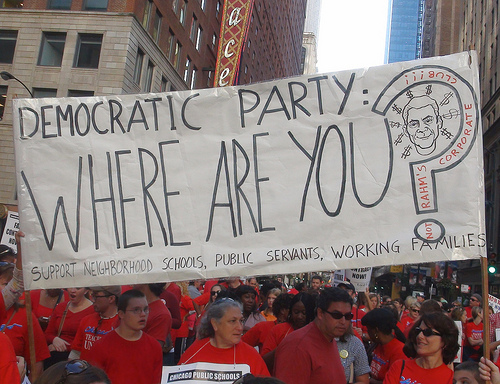A summary of what the Chicago Teachers Union said it “won” and “wanted to win but didn’t,” published in the Chicago Tribune:
“Our brothers and sisters throughout the country have been told that corporate “school reform” was unstoppable, that merit pay had to be accepted and that the public would never support us if we decided to fight. Cities everywhere have been forced to adopt performance pay. Not here in Chicago! Months ago, CTU members won a strike authorization vote that our enemies thought would be impossible- now we have stopped the Board from imposing merit pay! We preserved our lanes and steps when the politicians and press predicted they were history. We held the line on healthcare costs. We have tremendous victories in this contract; however, it is by no means perfect. While we did not win on every front and will need to continue our struggle into the future; we soundly defended our profession from an aggressive and dishonest attack. We owe our victories to each and every member of this rank and file union. Our power comes from the bottom up.”
” is a side by side comparison that demonstrates how far we’ve come in these tense, protracted negotiations with the Board.”












